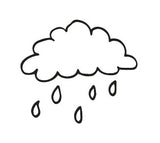At what age should my child be dry at night?
By the age of 4, most children have learnt how to control their bladder during the day, but night time dryness usually takes a little longer to achieve.
Mostly Dry
By the age of 5, many children will be having dry nights. However, around 20% of children will still be frequently wetting their beds at the time they start school. This means that at least one child in every primary school class is likely to wet their bed regularly.

When To Treat
NICE guidelines state that treatment is appropriate from the age of 5 and over. Once a child is 5 years old, see if their bedwetting is upsetting them and if they want to become dry at night. It is important that they are on board with the treatment process. If they are not yet ready, you can wait for a little while. By the time a child is 7 years old, however, action should be taken to tackle their bedwetting.

Not Too Late
The earlier that a child’s bedwetting is treated (after the age of 5), the easier it generally is to cure. However, this does not exclude older children from being able to cure their bedwetting. In fact, 8% of 9½ year olds still wet the bed at night. Treatment can be conducted in the same way for older children, but it may just take a little longer as they have become more “used” to wetting.

Conclusion
Up until 5 years old, bedwetting is perfectly normal. All children are different and so will learn to become dry at night at different ages. Bedwetting treatments can start when a child reaches the age of 5, and most certainly by the time a child is 7 years old. The earlier treatment can start, the more efficient and effective it is likely to be. However, this does not exclude older children from the treatment process. 
